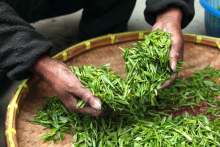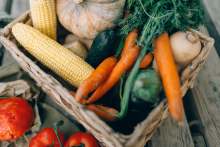In super-intensive olive groves across the Mediterranean, millions of birds have been sucked into harvesting machines and killed during night-time picking.
Since the issue first came to light in 2019, several regions have introduced laws banning the practices responsible, and many companies have created policies for their suppliers. So should you still worry about where your olive oil comes from?
Why was olive harvesting causing bird deaths?
In many Mediterranean countries, farmers harvest olives at night because the cool temperatures better preserve the olive flavours. But the super-intensive machines used can also suck up countless numbers of birds, which use the trees as a resting place while on their migratory journey between Europe and North Africa.
In 2019, a major report by Portugal’s Institute for Nature Conservation and Forests found that millions of birds were being killed as a result of the practice. Research estimated that in Andalusia at least 2.6 million birds were dying each year, while in the Avis region of Portugal the number was 96,000.
Similar practices have also been used elsewhere in Europe such as France and Italy, though bird death numbers in these countries do not appear to have been documented.
Many of Europe’s migrating birds are protected species. In Spain, researchers also found that practice was killing other animals such as geckos and dormice.
What have countries done to prevent bird deaths from olive harvesting?
Countries throughout the EU have since taken extensive measures to address the issues.
Portugal has banned intensive night-time harvesting, while France, Italy and Greece have all also either ended the practice or suspended it while undertaking further research.
Birds are more able to escape the harvesters by day, when they are less dazed by the noise and lights from machinery.
The Spanish region of Andalucia has also introduced several year-long bans, the most recent of which included exceptions for farms using vehicles with ‘wildlife protection systems’ – including thermal detection for spotting animals, and softer headlights so the birds won’t be dazzled and unable to fly.
Several companies told Ethical Consumer that intensive night-time harvesting methods have always been very uncommon in Greece, where many olive groves are on steep, rocky slopes less suited to machinery.






